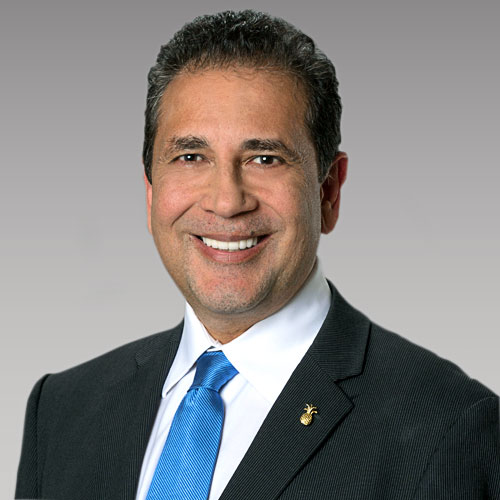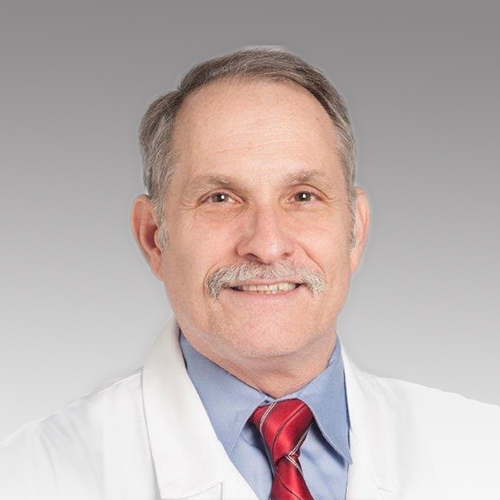Scientific Advisory Board

David G. Amaral, Ph.D.
Research Director, M.I.N.D. Institute, University of California – Davis
Dr. Amaral is a founding member of the M.I.N.D. Institute at UC Davis which is dedicated to understanding the biological bases of autism and other neurodevelopmental disorders, with the goal of developing preventative measures and innovative treatments. He coordinates a comprehensive and multidisciplinary analysis of children with autism (Autism Phenome Project) to define biomedical characteristics of different types of autism. This project has evolved into a recently NIH-funded Autism Center of Excellence.
Dr. Amaral received his BS from Northwestern University and his Ph.D. from the University of Rochester in Neuroscience and Psychology. He conducted postdoctoral research at the Department of Anatomy and Neurobiology at Washington University. He then spent 13 years at the Salk Institute for Biological Studies in La Jolla California before moving to UC Davis.
To learn more about Dr. Amaral, visit the UC Davis Mind Institute’s website.
Learn more about Dr. Amaral’s research at PubMed.
David G. Amaral, PhD
Research Director, MIND Institute, University of California - Davis

Robert E. Burrier, Ph.D.
Chief Operating Officer, Vice President of Research & Development
Dr. Burrier is a career technology executive in pharmaceutical research, biosupplier product development, and biotech services. He participated in over 150 drug discovery programs at Schering-Plough, Eli Lilly, GelTex, and Genzyme. In fact, Dr. Burrier participated in and led programs for drugs on the market, including Zetia and Vytorin.
Dr. Burrier’s work in biosupplier product development includes leading teams at Invitrogen and EMD Millipore (Merck) to innovate in cell biology, cell media development, assay development, and workflow improvements. The markets for these programs included academic and industrial cell biology research, stem cells, regenerative medicine, and biotherapeutic protein production.
At Stemina, Dr. Burrier has grown and integrated the company’s cell-based, analytical, and informatics capabilities to ensure its platform can tackle complex metabolic problems. Stemina developed stem cell-based assays for developmental toxicity and cardiotoxicity. He also leads the metabolomics efforts in NeuroPointDX, Stemina’s neurological disorders diagnostic division. Its first program uncovered biomarkers that identify metabolic subtypes of autism.
Learn more about Dr. Burrier’s research at PubMed.
Robert E. Burrier, PhD
Chief Operating Officer, Vice President of Research and Development

Professor Oliver Fiehn
University of California, Davis; NIH West Coast Metabolomics Center
Professor Oliver Fiehn has pioneered developments and applications in metabolomics with over 260 publications. Since 2004, he has served as Professor at the University of California, Davis. Since 2012, he has served as Director of the NIH West Coast Metabolomics Center, supervising 35 staff operating 17 mass spectrometers in his research and the separate service laboratories.
Professor Fiehn’s research aims to understand metabolism on a comprehensive level. He focuses on standardizing metabolomic reports and establishing metabolomic databases and libraries, for example, the MassBank of North America. He applies metabolomics to metabolic questions in human population cohorts, animal models, cells, and microorganisms. He collaborates with a range of investigators for interpreting metabolomic data in human diseases through statistics, text mining, and pathway-based mapping efforts. He also studies fundamental biochemical questions from metabolite damage repair to the new concept of epimetabolites, the chemical transformation of primary metabolites that gain regulatory functions in cells.
Learn more about Dr. Fiehn’s research at PubMed.
Professor Oliver Fiehn
University of California, Davis; NIH West Coast Metabolomics Center

Steven Fischer
Marketing Director, Academia and Government, Agilent Technologies
Mr. Fischer has been with Agilent Technologies / Hewlett Packard for 32 years. Over his career he has held positions in technical marketing and research and development. He has over 40 United States-issued patents in the field of mass spectrometry and analytical chemistry as well as over 30 peer-reviewed publications. He was the recipient of Agilent Technologies 2007 Bill Hewlett Award for outstanding instrument design innovation. Mr. Fischer currently manages Agilent’s Academia and Government market segment. His team has responsibility for Agilent’s worldwide metabolomics and proteomics programs. This includes developing solutions to the challenges of lipidomics, metabolomics, proteomics, and integrated biology analysis.
To learn more about Mr. Fischer, visit the Agilent Technologies website.
Learn more about Mr. Fischer’s research at PubMed.
Steven Fischer
Marketing Director, Academia and Government, Agilent Technologies

Minesh Mehta, MB, ChB, FASTRO
Professor and Chair, Radiation Oncology, Florida International University; Deputy Director, Miami Cancer Institute; Chief of Radiation Oncology, Baptist Health
Dr. Mehta is Chair of the NRG Oncology Brain Tumor Committee and previously served as a member of the FDA’s Technology Assessment Committee and chaired the FDA Radiological Devices Panel. Dr. Mehta was a member of the Board of Directors of the American Society for Therapeutic Radiology and Oncology (ASTRO).
Dr. Mehta obtained his medical degree at the University of Zambia, completed his residency in radiation oncology at UW-Madison and chaired the UW Department of Human Oncology from 1997 to 2007. He has served in leadership positions at Northwestern University and University of Maryland, where he was Director of the Maryland Proton Treatment Center. He has over 1000 publications.
He was a Deputy Director and Chief of Radiation Oncology of Miami Cancer Institute at Baptist Health South Florida in November of 2015 to oversee South Florida’s first and only Proton Therapy Center. Dr. Mehta is an internationally recognized expert in human clinical drug trial strategy, design and execution, and has managed numerous national and international trials.
To learn more about Dr. Mehta, visit The University of Maryland School of Medicine website.
Learn more about Dr. Mehta’s research at PubMed.
Minesh Mehta, MB, ChB, FASTRO
Professor and Chair, Radiation Oncology, Florida International University; Deputy Director, Miami Cancer Institute; Chief of Radiation Oncology, Baptist Health

Marvin Natowicz, MD, PhD
Learn more about Dr. Natowicz’s research at PubMed.
Marvin Natowicz, MD, PhD
Professor of Pathology, Cleveland Clinic Lerner College of Medicine of Case Western Reserve University; Physician at Cleveland Clinic

Denise M. Ney, PhD, Registered Dietitian Nutritionist (RDN)
Professor of Nutritional Sciences, University of Wisconsin-Madison
Dr. Ney received her PhD in nutrition from the University of California-Davis. In 1986, she joined the faculty at the University of Wisconsin-Madison, where she has served as Chair of the Department of Nutritional Sciences (1997-2003) and Director of the campus NIH Training Program in Molecular and Applied Nutrition (1998-2008).
Dr. Ney’s research program addresses two areas: gastrointestinal physiology, with a focus on the gut microbiota and neuroendocrine regulation of intestinal adaptation; and the nutritional management of the genetic disorder phenylketonuria (PKU).
The PKU research has resulted in a new paradigm for the PKU diet via development of medical foods with glycomacropeptide (GMP). Dr. Ney is a co-inventor on a GMP Medical Foods patent held by the Wisconsin Alumni Research Foundation and licensed to Cambrooke Therapeutics, Inc.
Dr. Ney received the 2013 Rare Disease Hero Award from the FDA and the 2015 Mary Swartz Rose Senior Investigator Award from the American Society for Nutrition, among others.
Learn more about Dr. Ney’s research at PubMed.
Denise M. Ney, PhD, RDN
Professor of Nutritional Sciences, University of Wisconsin-Madison

G. Sitta Sittampalam, PhD
Dr. Sittampalam has over 23 years of experience in drug discovery and development in the pharmaceutical industry (Eli Lilly & Co, Indianapolis, IN). He served four years in academic drug discovery and high-throughput screening as the Deputy Director of the Institute of Advancing Medical Innovations, and was a professor of Pharmacology, Toxicology, & Therapeutics at the University of Kansas Cancer Center (2007-11).
His current interests include developing physiologically-relevant 3D cellular models for drug discovery, circulating tumor cells, and cancer stem cells as biomarkers. He was a member of NIH RoadMap MLPCN Grants Review Panels (2005-2009) and has served on stem cell research grant review panels in Maryland (MSCRF) and California (CIRM). He is currently the Editor-in-Chief of the Assay Guidance Manual, sponsored by NCATS and NIMH. Dr. Sittampalam served on the editorial board of the Journal of Biomolecular Sciences (2007-present) and the scientific advisory boards of Science Translational Medicine, and Science Exchange Inc.
Learn more about Dr. Sittampalam’s research at PubMed.
